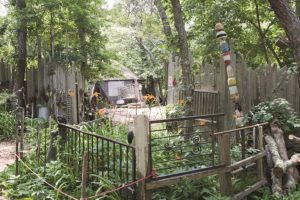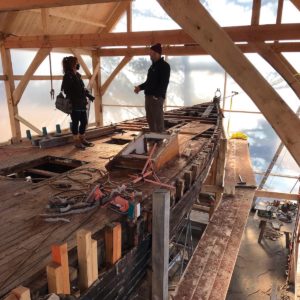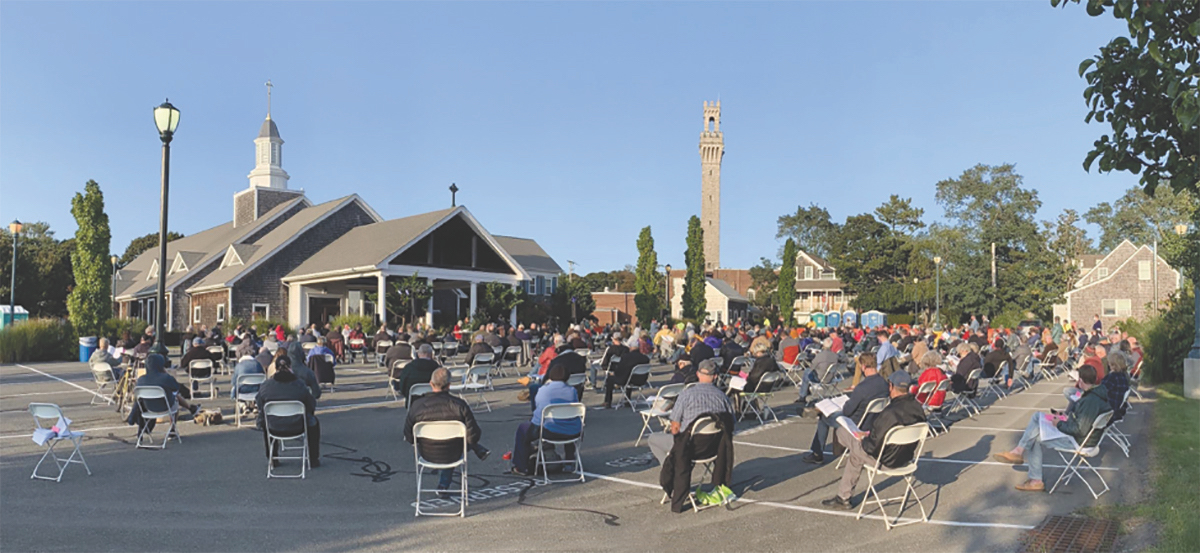PROVINCETOWN — Town meeting on Saturday will include requests to use some of the town’s remaining Cape Cod Land Bank funds to buy two small pieces of land for $300,000 each.
One parcel, addressed in Article 16 on the town warrant, was owned by John Eder, an artist who died in a house fire on the property on Nov. 21, 2019. It comprises about two-thirds of an acre, located far in the East End woods at 86R and 88 Atkins Mayo Road.
The other parcel, addressed in Article 15, is one-third acre at 668-R Commercial St., by the blinking light where Commercial and Bradford streets split. It lies on the landward side of Commercial Street and connects to the Whistle Path Woods, a 7.9-acre lot purchased in 2001 with Land Bank funds.
If the articles are approved, the purchases will come out of $2.4 million left for the town’s open space committee to allocate after the Land Bank was dissolved last year.

Enacted in 1998 during a time of increasing development, the Cape Cod Land Bank Act allowed towns to assess a 3-percent surcharge on real estate tax bills to fund purchases of land to be used for open space.
In 2020, the legislation that created the Cape’s land banks “sunsetted,” or ended. Most of the 15 Cape Cod towns had already stopped funding their land banks years ago when the Community Preservation Act (CPA) was created. The CPA allowed towns to assess 3-percent property tax surcharges for historic preservation and affordable housing, as well as for open space. Only Provincetown and Chatham continued to collect the 3 percent for the Land Bank on top of 3 percent for community preservation.
During the last 20 years, the Provincetown Open Space Committee has preserved 52 acres of land for $5 million, said Dennis Minsky, chair of the open space committee (and a columnist for the Independent).
Chatham used more than $19 million in Land Bank funds to buy 148 acres of open space, according to the Cape Cod Chronicle.
In Provincetown, Minsky said, the committee still will have at least $1.7 million in Land Bank funds after town meeting, even if both purchases are approved. The Eder property requires removal of the burned house and a cesspool. Beyond that, there are plans to create an interactive memorial to Eder, whose found objects, gardens, and hand-built fence still surround his small home.
“We are constantly looking around for properties,” Minsky said. But because this is public money, sellers must stick to the appraised value of the land, rather than bargain for more during a hot real estate market. “Sometimes we’re successful and sometimes we’re not,” he said. “A lot depends on if we have willing sellers.”
Among the biggest Provincetown Land Bank success stories, and the largest in terms of acreage, was the 17.5-acre Dune’s Edge Campground off Route 6. This 2013 purchase did not become strictly open space. It was part of a deal that involved a $150,000 contribution of CPA funds, $400,000 from the state, and contributions made through the national nonprofit Trustees of Reservations, which manages the property as a campground.
Rather than searching for buildable lots to preserve for open space, Provincetown officials now are combing over maps to find land that can be used for affordable housing. But Land Bank funds would be off limits for such purchases.
“We all agree that housing in a crisis and needs to be addressed,” Minsky said. “But this money cannot be delegated to affordable housing without an act of the state legislature, which is not going to happen.
“All the land we buy must be buildable,” Minsky continued, and it must have some “intrinsic value.” For example, the open space committee has made small purchases that patched together a greenway for animals, plants, and birds behind Bradford Street in the East End.
The original owners of the Mews Restaurant, Ray and Nicholas Wells, sold 4.1 acres off Harry Kemp Way in 2004 and 2006 to the town. The Wellses were supporters of the theater and had originally bought the land to construct a theater, Minsky said. Nature trails now crisscross the property. It’s called “Nicky’s Park.”



